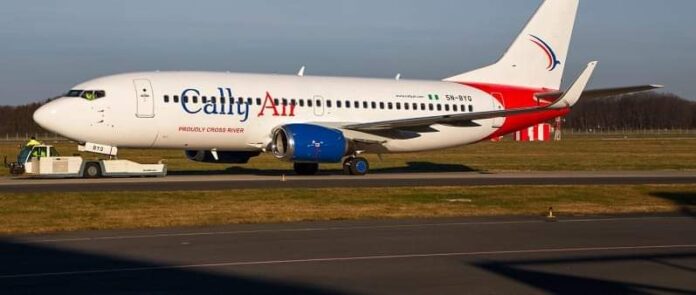Since news filtered in that the state government has purchased an aircraft for the commencement of the much touted CALLY AIR, attention is gradually shifting from the celebration of this feat by Governor Ayade, who has walked his talk on the project, to the alleged age of the aircraft, and rightly so. But before that, let it be on record that I join the many lovers of development in Cross River to congratulate the State government on this one.
That said, the said aircraft, a Boeing 737 – 36Q (WL) airline, with registration number 5N – BYQ and serial number 30334/3120 is according reports, aged 21.4years.
For many, that is not too good for a new carrier especially when it is starting as the only one on the fleet. Before writing this piece, I took a little stroll to google just to check the average life span of a passenger plane before it is due to be parked or considered not to be airworthy and the results is that the average lifespan is between 25-30yrs.
In some cases, planes are removed from the air as early as after 18yrs and the parts sold and others recycled, especially if the cost of maintenance will gulp more money than sales and recycling of some of the parts.
According to a 2020 article by E. Mazareanu on Statista, the average age of aircrafts removed from the global airspace between 2005 and 2018 was 26yrs and five months. Specifically, the report said in 2005 the age was 25.8yrs, 2012 26yrs, 2013 24.7yrs, 2015 27.5yrs, 2016 28.5yrs, 2017 26yrs and 2018 27.6yrs.
From the above data, when compared to Cally Air’s 21.4yr-old aircraft, it means that in another five years, that plane should ordinarily and under normal circumstances not fly again.
However, studies further revealed that when properly maintained as prescribed by the manufacturer, aircrafts can be flown for as long as 35-40yrs. But the question is, will the management of Cally Air adhere to the maintenance culture if it intends to fly the aircraft for that long?
We are well aware that maintenance culture is very poor in this part of the world and for an aircraft whose more than half of the life span has been used already will only do well if properly maintained.
For the avoidance of doubt, here are the prescribed checks for effective performance as prescribed by manufacturers:
A Check:
Performed about every 500 to 800 flight hours or up to 400 cycles. It requires up to 100 man-hours to perform and it is typically carried out at an overnight stop.
B Check:
Required every 4 to 6 months and requires about 150 man-hours and takes about I day.
C Check
This check is comprehensive and the entire aircraft is inspected. It is conducted every 21 months and requires about 6,000 man hours.
D Check
The D Check is the most expensive and demanding costing about $7 million and requiring up to 100,000 man hours depending upon the age of the aircraft. These are completed about every five years and airlines must plan well in advance to ensure that it does not have too many aircraft requiring D Checks at the same time.
From the above, it is clear that A Check will be most convenient because of cost and will help the aircraft stay longer in the air.
While we celebrate the arrival of the Cally Air and hopefully her maiden flight, let it be on record that nobody wants to board a flying corps, but that is not to say that the plane is a flying corps. Air crashes rarely have survivors and the thought of an air crash when boarding is always heart wrenching.
Management should always be reminded that this bride is not follow come, you can’t be doing gymnastics in bed with her after like 4-6children. But you can expect semi-optimum performance from her with much care and attention. It is the natural course of life and that is what we expect.
Nobody wishes Cally Air bad as some reactions on social media may have suggested, to so do is to tell us you are evil. Concerns are only voiced because it will serve the public and anything devoted to public service is also open to public scrutiny.
On the whole, we welcome Cally Air and wish her well and also hope that the fares will be the most competitive in the local industry and priority will be given to flights to and from the Ancient City of Calabar. And to us Cross Riverians, let’s patronize it and help it grow so that our state’s economy too will grow.
Nten Ekpang writes from Abuja.










